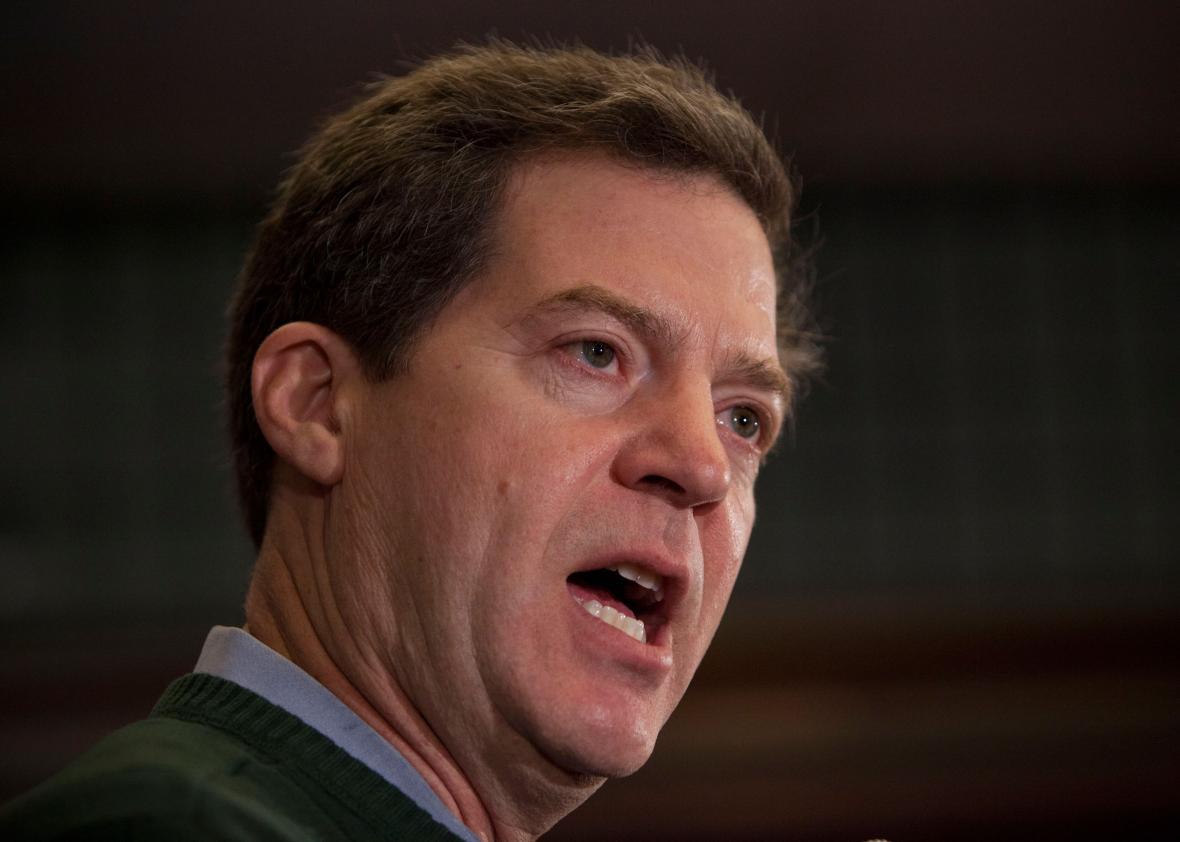In 2012, Kansas Gov. Sam Brownback attempted to turn his state into a showcase for hardcore conservative policy thinking by passing a package of tax cuts so berserk that, even at the time, some of his fellow Republicans worried it was a tad ill-advised. And so it was. As many expected, the reductions have been a calamity for the state’s fiscal health. Kansas has found itself chronically short of funds, forcing legislators to slash spending on things like education and help for the poor. The state’s credit rating has been downgraded, and for all the trouble, its job growth has been absolutely anemic.
Brownback conveniently blames all this on the harsh winds of the global economy, which have battered local industries like aircraft manufacturing and agriculture. But with yet another budget crisis looming, many of his conservative allies are in open revolt. The vast majority of people not named Sam Brownback seem to agree that this was all a harebrained idea.
Just don’t expect Republicans to draw many lessons from the misadventure.
The problem isn’t merely that modern conservatism has proved physiologically impervious to data or fact, though that’s certainly part of it. Anti-tax avenger Grover Norquist loved Brownback’s tax cuts when they passed, and his ardor for them doesn’t appear to have abated with time. As befits a man of faith, supply-side mullah Art Laffer, who advised Brownback, is still convinced that the cuts will one day bring new prosperity to Kansas.
But even the conservative movement’s more critical minds have found reasons to dismiss Kansas’ troubles as a freak error rather than to accept them as a fundamental indictment of an economic ideology that insists that lowering tax rates is the one true route to growth. This is because, even by the standards of steroidal tax-slashing plans, Brownback’s was really poorly designed. In particular, it contained an unprecedented break that exempted profits from pass-through businesses from income taxes, a basically unjustifiable measure that has significantly contributed to the gutting of Kansas’ budget.
A brief explanation: Companies organized as pass-through entities, such as partnerships, LLCs, or S-corporations, don’t pay corporate taxes. Instead, their profits get handed over to their owners, who then pay personal income taxes on the earnings. Brownback exempted those profits from state taxes under the theory that it would help spur more small-business growth.
The problem is that many large and successful businesses are also organized as pass-through entities. And, as the right-leaning Tax Foundation gently warned in 2012, there was nothing to stop other big companies from restructuring themselves to avoid taxes. That seems to have happened in a big way: About 70 percent more businesses have taken advantage of the loophole than expected, which has helped cripple the state’s budget projections.
In the years since 2012, the Tax Foundation has become more savage in its assessment of the pass-through carve-out, as they call it, referring to it as a failed gimmick. During recent testimony before Kansas state legislators, one of the think tank’s economists argued that the whole debacle was “doing damage to the state tax reform conversation nationally”—which is to say, the Sunflower State’s problems were scaring people off from tax cuts.
So, if you ask a conservative what’s the matter with Kansas, you’ll get one of two answers. Some, of course, will say nothing’s the matter. More sophisticated Republicans will tell you Brownback simply picked the wrong tax to slash. Don’t expect much soul-searching.
